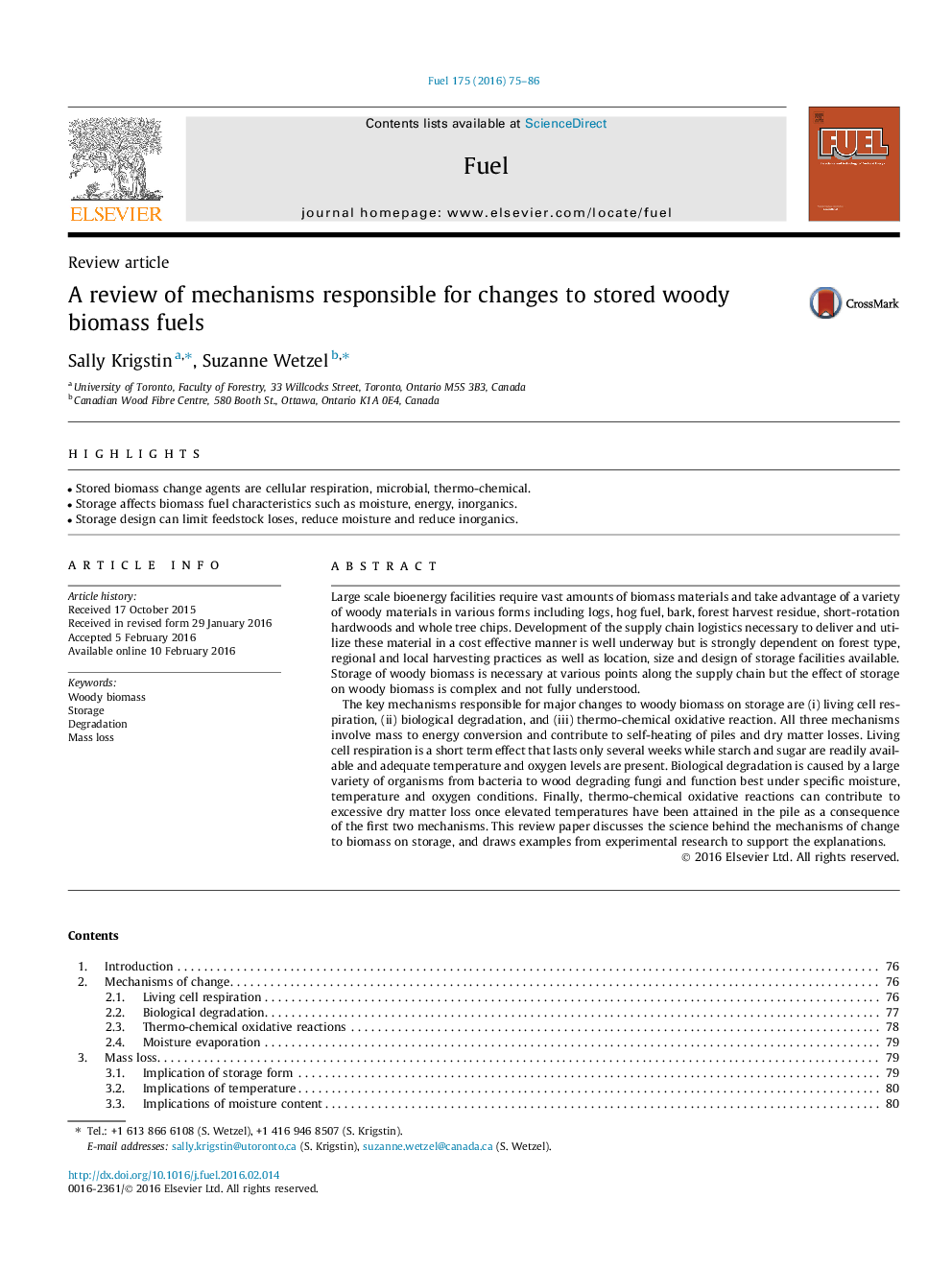| Article ID | Journal | Published Year | Pages | File Type |
|---|---|---|---|---|
| 6633962 | Fuel | 2016 | 12 Pages |
Abstract
The key mechanisms responsible for major changes to woody biomass on storage are (i) living cell respiration, (ii) biological degradation, and (iii) thermo-chemical oxidative reaction. All three mechanisms involve mass to energy conversion and contribute to self-heating of piles and dry matter losses. Living cell respiration is a short term effect that lasts only several weeks while starch and sugar are readily available and adequate temperature and oxygen levels are present. Biological degradation is caused by a large variety of organisms from bacteria to wood degrading fungi and function best under specific moisture, temperature and oxygen conditions. Finally, thermo-chemical oxidative reactions can contribute to excessive dry matter loss once elevated temperatures have been attained in the pile as a consequence of the first two mechanisms. This review paper discusses the science behind the mechanisms of change to biomass on storage, and draws examples from experimental research to support the explanations.
Related Topics
Physical Sciences and Engineering
Chemical Engineering
Chemical Engineering (General)
Authors
Sally Krigstin, Suzanne Wetzel,
